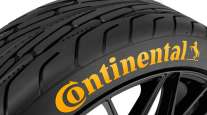Continental Sticks to Powertrain IPO Plan Amid Profit Slump

Continental AG is moving ahead with plans to carve out its powertrain division while postponing a final decision, as the German auto-parts maker adapts to the disruptive and costly shift to self-driving electric cars.
Preparations for a partial initial public offering of the unit, which makes components for combustion and electric-powered vehicles, will be completed toward the end of the second half, the Hanover-based company said April 26 in a statement. The unit is valued at as much as $5.6 billion (5 billion euros).
The project is taking longer than expected. Continental now sees a potential listing for the division — dubbed Vitesco Technologies — in 2020, depending on conditions. It earlier targeted a possible IPO in the second half of this year.
After Volkswagen AG put on hold plans to list its heavy trucks unit Traton SE in March, Continental’s efforts to follow through on the powertrain separation were greeted warmly by investors. The carve-out will cost Continental 350 million euros and trigger a negative tax hit of an additional 100 million euros.
CEO Elmar Degenhart, speaking at Continental’s annual general meeting in Hanover, stressed the strategic importance of the company’s reorganization into three divisions. The manufacturer must become more agile to navigate a fundamental technology shift, he said. A separate listing would allow the powertrain unit to raise fresh funds on its own if needed.
Degenhart reiterated the company will retain a majority stake in the unit “in the mid- and long-term.” It’s considering selling a stake of as much as 25%, Chief Financial Officer Wolfgang Schaefer told investors. The unit generated 11 billion euros in orders last year, with around 2 billion euros related to electric mobility.
The shares rose as much as 3.6% and were up 2.7% in late-day trading in Frankfurt. The stock has declined by about a third over the past 12 months, paring the parts maker’s value to 30.6 billion euros.
Degenhart said Continental already flagged some years ago the potential option for a separation of the high-margin rubber unit, but he told shareholders there is “currently no need” for such a step. The company is in robust financial health and has sufficient financial muscle for acquisitions of up to 5 billion euros, he said.
The urgency for Continental’s strategic overhaul was evident in the first quarter. Operating profit dropped 17% to 884 million euros as global car production declined more than 6% even with demands to invest in new technology intensifying. With sales flat at 11 billion euros, the profit margin narrowed to 8.1% from 9% in the previous year.




